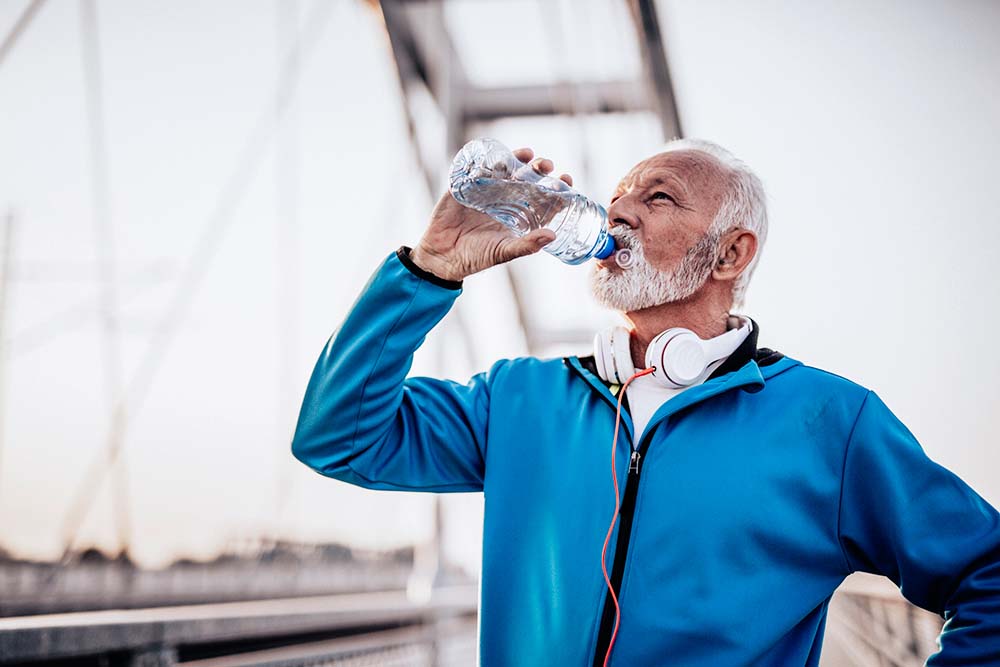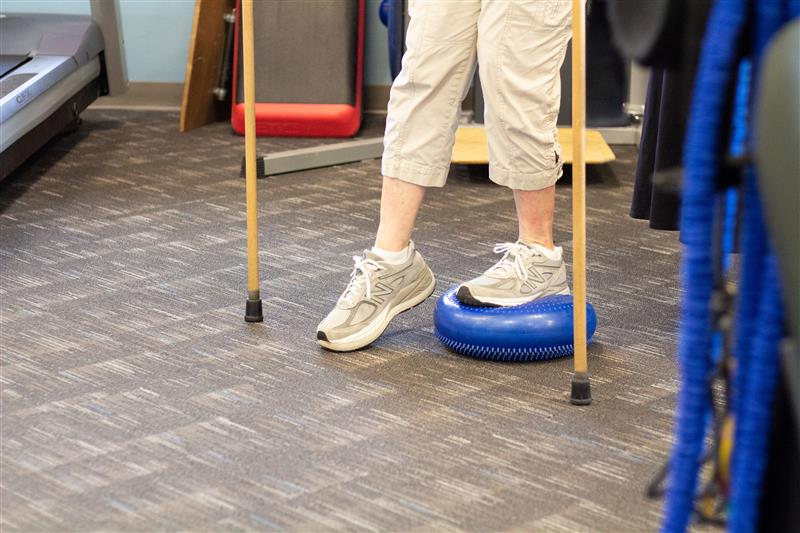Dehydration in seniors is incredibly common. As we grow older, our bodies undergo changes that can make us more likely to get dehydrated. These changes include having less water in our bodies, not feeling as thirsty anymore, the kidneys being less able to concentrate urine, and a hormone called vasopressin slowing down production. All of these things together make seniors more susceptible to becoming dehydrated. Knowing the signs and prevention tips is crucial to maintaining and enjoying a healthy and fit lifestyle.
Typically dehydration occurs when the body has lost too many fluids and electrolytes, which are mineral compounds the body needs to regulate temperature and keep a healthy fluid balance. Common sense tells us that warmer weather is when you must be most concerned. However, while you might not be sweating in the winter, cold temperature constricts blood vessels to conserve heat in your core organs (oddly enough, this makes you less thirsty and can lead to you drinking less water). Dehydration may only cause small (sometimes telltale) symptoms, but it can significantly affect the body, especially for seniors.
Severe dehydration in older adults can be fatal and commonly leads to hospitalization. Those at the highest risk of dehydration are individuals who do not drink enough water or sweat frequently or severely. Dehydration can also be experienced as a side effect of diuretics or laxatives. It can also be caused by medical problems, including diarrhea, vomiting, heat stroke, high blood sugar (hyperglycemia), infections, or excessive exercise.
Signs of Dehydration in Seniors:
- Confusion
- Difficulty walking
- Dizziness or headaches
- Dry mouth
- Sunken eyes
- Inability to sweat or produce tears
- Rapid heart rate
- Low blood pressure
- Low urine output
- Constipation
Tips to Prevent Dehydration:
- Have an appropriate amount of fluids daily. For most people, this means more than eight glasses of water, plus the liquids you get from your foods.
- Keep track of how much water you’re drinking. Drink water with each meal, between meals, before, during, and after exercise.
- Check body weight regularly. Fluctuations of 2-3 lbs. daily may indicate irregular fluid intake.
- Avoid being in the hot sun for long periods and ensure extra hydration for more prolonged exposure.
- Include healthy foods with high water content in your diet, such as broths or soups, fruit juice, soft fruits, and vegetables. Many of these foods also contain sodium, potassium, and other electrolytes that help regulate your hydration levels.
- Remember to hydrate in cold weather. Sweat evaporates quicker in cold air, and all that vapor in your breath that’s visible can lead to winter dehydration.
- Most importantly, keep a water bottle on hand and next to your bed or favorite chair, and try to drink often!
As with most illnesses, prevention is the key. Staying hydrated now is much easier than treating dehydration later. For more information about staying hydrated or scheduling a free injury assessment, contact your local ProActive physical therapy clinic!





